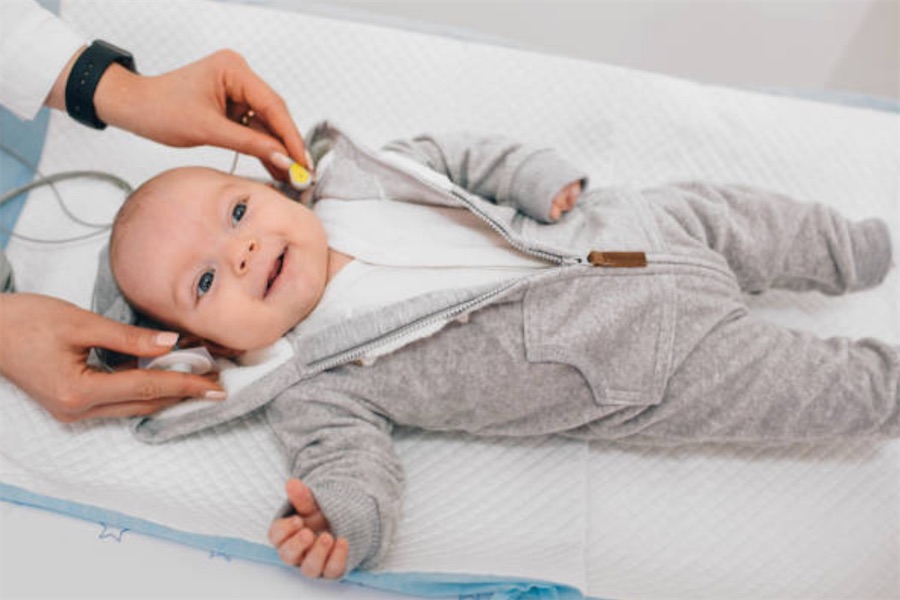A routine hearing test given to newborns could help spot autism and other neurodevelopmental variations early in infancy.
Rutgers University researchers found newborns with distinct delays in their auditory brainstem response (ABR) to sounds later received a diagnosis of autism spectrum disorder.
- On average, these newborns had a 1.76-millisecond lag compared to newborns who developed typically.
”With very little effort and cost, we could build a universal screening test to eliminate disparities in infant neurodevelopment and establish normative scales of such a dynamic process. This will give us the ability to measure individual departures from these neurotypical ranges, as early as possible, when the nervous system is rapidly changing and adapting to its environment, and the brain-body circuitry is forming." —Elizabeth B Torres, Rutgers University and Director, New Jersey Autism Center of Excellence
Why it matters
The earlier clinicians detect autism, the earlier therapy can start. This is crucial for the effective treatment of developmental disorders because babies’ brains are exceptionally adaptable.
- Newborns with ABR lags may have difficulty integrating sound with other senses like vision, movement, and pain.
- It may also be more difficult for these newborns to communicate socially and learn languages.

”As a result of the extreme plasticity of an infant's brain, the earlier the therapeutic intervention, the more effective the treatment will be."
A closer look
The results may help explain differences in language acquisition, sensory processing, and motor control, capabilities that are vital in social interactions and communication as the baby matures.
For example, autistic children often display excessive movement, such as repeating specific actions (“stimming”), and have unusual reactions to sensory stimuli.
”Research shows that the so-called "repetitive, ritualistic behaviors" are an adaptation of a system that is operating on different hardware and nevertheless, attempting to communicate with us," said Torres. "Our results call us to rethink what autism really is."

